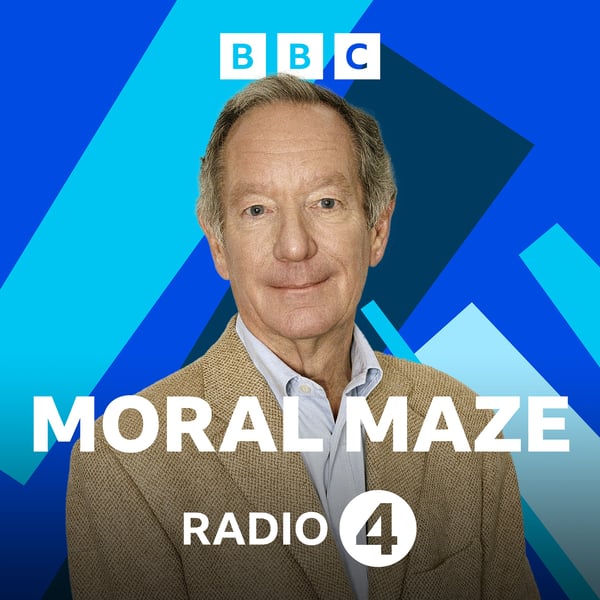Summary
130 sessions of oral evidence,150 witnesses, 150,000 documents, more than 2.5 million words - the Chilcot Report on the Iraq War was finally published on the day of this programme. The inquiry was set up to examine our reasons for taking part in the US-led invasion of Iraq, how the war was prosecuted and its aftermath. But was the decision to go to war morally justified? Chilcot confirms that there was a massive failing in intelligence in the lead-up to the decision to go to war, especially around WMD; it accepts that Tony Blair was acting in good faith and did not deliberately mislead Parliament and the public about that intelligence. The relationship between morality and consequences is complex and sometimes contradictory. If Tony Blair and his government were acting in good faith but the consequences of that war were so catastrophic, can we still describe the decision to go to war as a moral one? If the government were a limited company, isn't this the kind of gross negligence that would lead to directors being prosecuted for corporate manslaughter? On the other hand, if - being wise after the event - we were to hound all politicians for making decisions that went wrong, wouldn't that produce sclerosis and the replacement of democratic judgement with technocracy? Is this a counsel of moral perfection that produces only paralysis of the will? When does ignorance become a moral failing? Is that contingent on outcomes? What if the war had been a success and Iraq transformed into a flourishing democracy? Would we still be worrying about whether it was moral? Would we have spent £10m on an inquiry about it? Chaired by Michael Buerk with Michael Portillo, Matthew Taylor, Giles Fraser and Melanie Phillips. Witnesses are Prof Michael Clarke, John Rentoul, Haider Al Safi and Dr Dan Bulley.
Transcript
Click on a timestamp to play from that location
| 0:00.0 | You're listening to a program from BBC Radio 4. |
| 0:04.0 | Good evening. So after seven years, 10 million pounds and 2.5 million words, |
| 0:08.7 | the Chilcott report into the Iraq War and its aftermath doesn't say whether it was morally justified. |
| 0:14.6 | It doesn't even have an opinion on its legality, merely observing that the way the government decided it was lawful was far from satisfactory. |
| 0:22.8 | It's pretty damning otherwise. We went to war even though peaceful options had not been exhausted, |
| 0:27.5 | and the perceived threat, the Casos Belai, was either overstated or didn't exist at all. |
| 0:32.5 | Ministers sent ill-prepared troops into battle. Plans for the war's aftermath were wholly inadequate, |
| 0:38.4 | and the government was warned of the likely consequences, |
| 0:40.9 | which to date include hundreds of thousands dead, |
| 0:43.4 | a million displaced, a sectarian civil war, |
| 0:46.3 | and religiously inspired savagery mushrooming across the Middle East. |
| 0:50.6 | Tony Blair today described it as the most agonising time of his premiership. |
| 0:54.1 | He was sorry for the loss of life, but not for the decision that led to it. Tony Blair today described it as the most agonising time of his premiership. |
| 0:57.8 | He was sorry for the loss of life, but not for the decision that led to it. |
| 1:02.3 | His defence has been that he acted in good faith, which the report accepts, |
| 1:06.6 | and that the consequences could not have been foreseen, which the report does not. |
| 1:10.1 | We do not agree that hindsight is required, it says. |
| 1:14.7 | So was the decision to go to war morally justified at the time? |
| 1:17.7 | "'It removed a genocidal dictator, after all. |
| 1:21.5 | "'If it was done in good faith, albeit on the basis of incorrect intelligence, |
| 1:24.2 | "'should that shield Mr Blair and his ministers from blame? |
| 1:28.3 | "'Or is the catalogue of negligence and incompetence in planning for the war and coping with its aftermath immoral in itself? And what about the complex relationship between |
... |
Please login to see the full transcript.
Disclaimer: The podcast and artwork embedded on this page are from BBC, and are the property of its owner and not affiliated with or endorsed by Tapesearch.
Generated transcripts are the property of BBC and are distributed freely under the Fair Use doctrine. Transcripts generated by Tapesearch are not guaranteed to be accurate.
Copyright © Tapesearch 2025.

